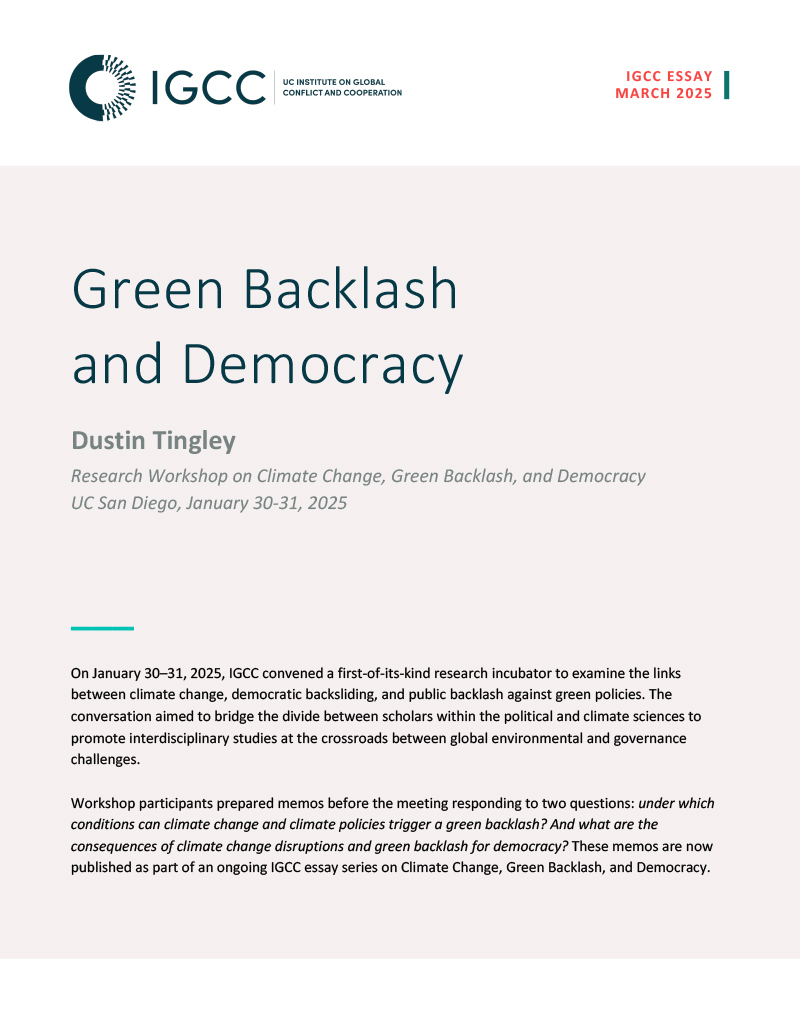Green Backlash and Democracy

In this essay—part of an ongoing IGCC series on Climate Change, Green Backlash, and Democracy—Dustin Tingley, a professor of public policy at Harvard University, traces the origins of green backlash and examines its effects on democracy.
DownloadHuman-induced climate change is creating and amplifying societal threats across the world. Yet the politics of climate mitigation in democratic countries remains fraught, and the response by these governments has been muddled; while many pursue policies that seek to slow down climate change, leaders still supporting policies that lead to climate-changing emissions.
In this essay, Dustin Tingley, Thomas D. Cabot professor of public policy at the Kennedy School of Public Policy and the Department of Government at Harvard University, explores this contradiction within the context of green backlash. Tingley notes that both climate change and policies to address it have distributional consequences, which means that both adaptation and mitigation policies will be politically contested, with wider implications for climate policy and the health of democratic politics more generally. In understanding the impact of green backlash, Tingley counsels scholars to heed lessons from other forms of policy resistance and to isolate the factors at play in green backlash specifically, which are at risk of being overdetermined by the broader political agenda of far-right and populist movements.
_______________________
On January 30–31, 2025, IGCC convened a first-of-its-kind research incubator to examine the links between climate change, democratic backsliding, and public backlash against green policies. The conversation aimed to bridge the divide between scholars within the political and climate sciences to promote interdisciplinary studies at the crossroads between global environmental and governance challenges. Workshop participants prepared memos before the meeting responding to two questions: under which conditions can climate change and climate policies trigger a green backlash? And what are the consequences of climate change disruptions and green backlash for democracy? These memos are now published as part of an ongoing IGCC essay series on Climate Change, Green Backlash, and Democracy.